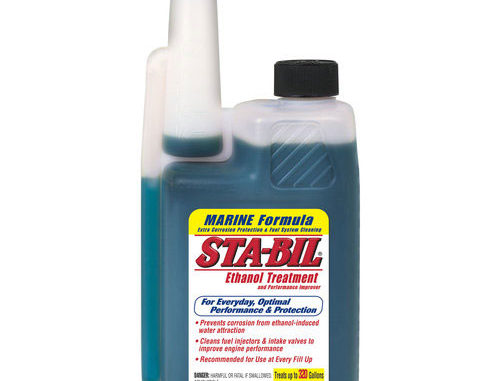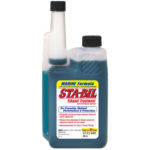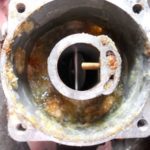
Alcohol in E10 attracts moisture that can damage boat motors
The biggest problem with gasoline blended with ethanol is that it’s hygroscopic, meaning it is attracted to water, self-described ethanol critic Alton “Pete” Landry said.
“It’s like a water magnet, and marine engines are particularly sensitive,” Landry said. “Boats live on water and their fuel tanks vent to the atmosphere. The difference between daytime and nighttime temperatures could be 10 to 15 degrees or more.
“What happens when your boat is parked in your garage and the fuel tank is vented to the atmosphere, (is that) it vents out the volatile components of the gasoline during warm daytime hours. As the temperature cools in the evening, the fuel tank sucks in air from the atmosphere to keep the pressure balanced. What does it bring in with air? Moisture.”
That’s where Landry says the problem begins, as moisture coalesces into small droplets in the fuel tank that eventually fall to the bottom because water has a higher density than gasoline.
“If per chance the water layer gets large enough, the fuel pump will suck water directly into the engine, and that will destroy newer carbureted engines. It will just shut them down,” Landry said.
Fuel-injected engines like 4-strokes and 2-strokes will actually blow up the engine if water is pumped directly into it, he said.
In the interim, if ethanol-free fuel is unavailable, Landry recommends a non-alcoholic fuel stabilizer that will extend the shelf life of ethanol-blended gas to about one year.
“If you can no longer find conventional ethanol-free gasoline and you’re forced to use ethanol, I recommend the use of the blue Marine Formula Sta-Bil Ethanol Treatment fuel stabilizer,” Landry said.
For a video on Marine Formula Sta-Bil, click here.
Landry, who is scheduled to be a guest on the Think Tank with Don Dubuc on WWL this Friday between 10 a.m. and 1 p.m. to discuss this issue, recommended that interested citizens contact Chalmette Refining’s community hotline to encourage them to continue full production of conventional gasoline.
“I urge them to continue to call Chalmette Refining and voice their displeasure about this decision,” he said.




